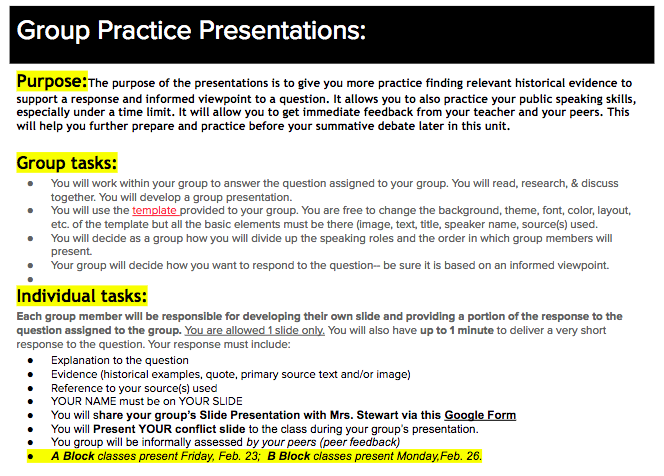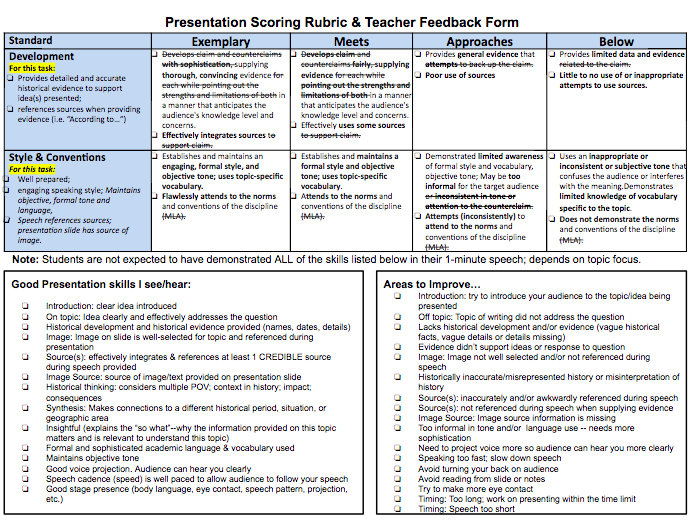|
Helpful Resources for Today's Class:
HW: Due Friday 2/23 (A Blocks); 2/26 (B Block): slide + 1 min. presentation notes/speechBe sure when you arrive to the next scheduled class you are ready to present.
Presentation Tips: If you look at the rubric you will see that it is important that your presentation topic addresses the question in some part and that you provide evidence to support your idea(s) and reference your source(s). You should also be sure the image you select for your slide is relevant to the ideas you discuss. Your image can be used as a piece of evidence. You should reference your image in some way (could take a few seconds or longer--if it is an important piece of evidence you will use). Be sure your image also has the source listed. Speech Tips: You are allowed to have notes (note card, sheet of paper) with you when you present. Try to avoid reading from your notes the whole time or reading from your slide (your audience is capable of reading the text on your slide). Comments are closed.
|
Mrs. Stewart's CourseYou'll find a daily agenda posted here for each day that class meets Archives
May 2020
Categories |


 RSS Feed
RSS Feed